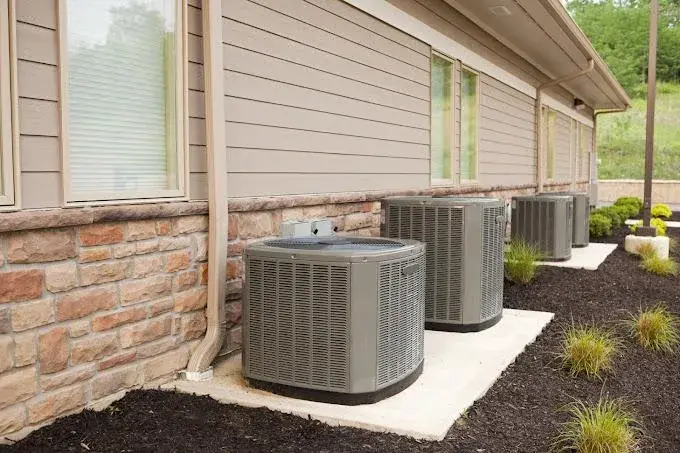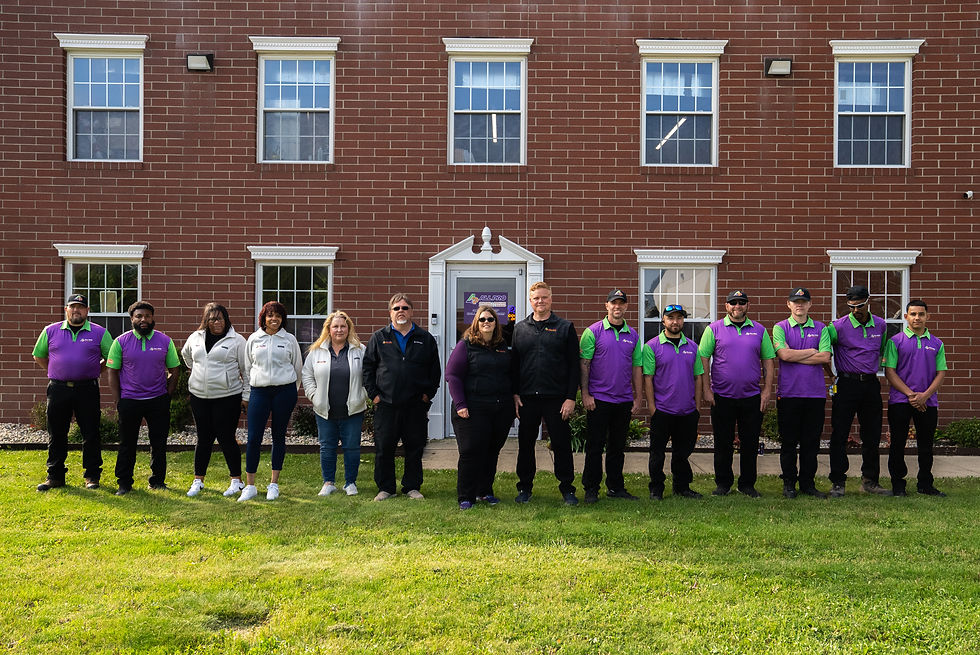Air Conditioning Repair: Common Issues, Fixes, and When to Call a Pro
- All Pro

- Sep 22, 2025
- 3 min read

Air conditioning is no longer a luxury—it’s a necessity for both homeowners and business owners. When your AC system fails, it can disrupt comfort, productivity, and even health. While some issues are minor and fixable with simple maintenance, others require professional attention.
This guide breaks down the most common air conditioning repair problems, how to troubleshoot them, and when it’s time to call an HVAC professional. By the end, you’ll understand how to protect your system, lower repair costs, and keep your home or business cool.
Common Problems for Air Conditioning Repair
Air conditioners are complex machines, but many failures stem from predictable issues. Some of the most frequent repair calls include:
Refrigerant Leaks – Low refrigerant levels reduce cooling efficiency and may signal a leak.
Dirty or Clogged Filters – Blocked airflow causes reduced performance and higher energy use.
Frozen Evaporator Coils – Often caused by restricted airflow or low refrigerant.
Electrical Failures – Faulty wiring, blown fuses, or capacitor issues can shut down the system.
Thermostat Malfunctions – Incorrect readings lead to uneven cooling.
Drainage Problems – A clogged condensate drain can cause water leaks and damage.
Understanding these common issues can help you spot warning signs before they turn into costly breakdowns.
DIY Troubleshooting and Maintenance Tips
Not every AC problem requires a technician. Here are a few safe steps homeowners and business owners can take before scheduling service:
Check and Replace Air Filters every 1–3 months.
Inspect the Thermostat – Ensure it’s set to the correct mode and temperature.
Clean Around the Outdoor Unit – Remove leaves, dirt, or obstructions from the condenser.
Check the Circuit Breaker – Sometimes, a tripped breaker is the cause of a “dead” AC.
Look for Airflow Issues – Blocked vents or ducts can mimic system failure.
⚠️ Caution: Avoid opening sealed components or handling refrigerant. These require licensed HVAC technicians.

When to Call a Professional HVAC Technician
While DIY maintenance helps, there are clear signs you need a pro:
Strange Noises or Odors – Grinding, squealing, or burning smells indicate mechanical issues.
Uneven Cooling – If certain rooms are always hotter or colder, ductwork or refrigerant may be the culprit.
Frequent Cycling – Short on/off cycles can damage your compressor.
Warm Air from Vents – Suggests compressor or refrigerant problems.
Rising Energy Bills – Sudden spikes often signal system inefficiency.
Professional HVAC technicians have the tools and certifications to diagnose and repair issues safely and effectively.
Additional Insights / FAQs
How often should I service my air conditioner?
At least once a year—preferably before summer. Preventive maintenance reduces breakdowns.
How much does air conditioning repair cost?
Repairs can range from $150 for simple fixes to $2,000+ for compressor replacement. The average repair falls between $300–$600.
Can regular maintenance prevent repairs?
Yes. Routine filter changes, coil cleaning, and annual inspections catch problems early.
Should I repair or replace my AC?
If your system is older than 10–15 years and repair costs exceed 50% of replacement, replacement may be the better investment.
Conclusion
Air conditioning repair is inevitable, but knowing the common problems, basic troubleshooting, and when to call a professional can save you money and keep your system reliable.
At All Pro Heating, Air & Plumbing, we provide fast, professional AC repair services across Indianapolis. Whether it’s an emergency breakdown or preventive maintenance, our expert technicians ensure your comfort all summer long.
Ready for worry-free cooling? Contact All Pro today for expert AC repair in Indianapolis.





Comments